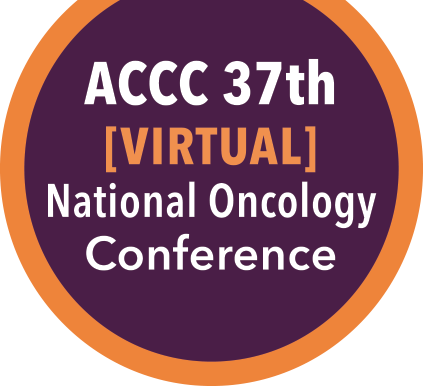
Wednesday, September 16
A Nurse Navigator-Led Community-Based Cardio-Oncology Clinic
Overview
Hear how this program grew from manual chart mining to identify at-risk patients into a program sustained by robust referrals from providers looking for the specialized expertise of cardio-oncologists. Today Franciscan Health Cancer Center Indianapolis manages the cardio-toxic side effects of more than 1,000 cancer patients. Working in collaboration with medical oncologists and other members of the multidisciplinary team, the cardio-oncology team helps keep oncology patients in treatment and works to improve patient quality of life. Gain additional perspective from an educational video that chronicles a patient’s journey through the clinic.
Speakers
Vijay Rao, MD, PhD, FACC, FASE, FHFSA, Director, CardioOncology; Co-Director, Heart Failure Program and Anti-coagulation Clinic
Kerry Skurka, RN, BSN, Cardio-Oncology Nurse Navigator
Franciscan Health Cancer Center Indianapolis
Reducing ED Visits and Hospital Admissions after Chemotherapy with Predictive Modeling of Risk Factors
Overview
After conducting a retrospective review to identify clinical variables associated with increased risk of hospital admissions and emergency department visits, Mercy Cancer Care used these data to develop and implement a predictive algorithm that stratifies patients according to their 30-day risk of both events. A daily dashboard report identifies all patients as high, intermediate, or low risk. These dashboard risk scores are then used to proactively manage patients with referrals to services such as social work, dietitian, or evaluation for possible home care assistance. Ultimately, this QI initiative effort will allow proactive management of patients within 30 days of their outpatient chemotherapy—the OP 35 bundling payment initiative that CMS put into effect this year under its Hospital Outpatient Quality Reporting Program.
Speaker
Michelle Smith, DC, Director Oncology Services
Mercy Cancer Care
Shifting Chemo Administration from Inpatient to Outpatient Setting Improves Care and Reduces Costs
Overview
At the University of Arizona Cancer Center, Banner University Medical Center Tucson, a multidisciplinary team of physicians, pharmacy staff, finance specialists, social workers, nursing staff, and information technologists first identified chemotherapy regimens administered in the inpatient setting that could be safely administered in the outpatient setting, and then implemented a transition plan that included provider and patient education. Benefits included reduced inpatient medical resources and chemotherapy costs, decreased inpatient bed stay, lower infection rates, improved quality of life, and decreased overall cost of care—conservatively estimated at almost $6 million.
Speaker
Integration of Prehabilitation, Rehabilitation and Prospective Surveillance Into Cancer Interdisciplinary Teams
Overview
Learn how Beaumont Cancer Institute implemented these services and improved the patient experience, reduced hospital length of stay, and facilitated early identification of physical impairments, functional limitations, and/or treatment restrictions. Other key outcomes include reduction of cancer-related fatigue, lymphedema, and falls, and non-opioid pain management. Then hear about the important role rehabilitation played in palliative care for patients with advanced cancer by optimizing quality of remaining life and minimizing unwarranted hospital readmissions. Patient case-based scenarios and video vignettes demonstrate how to integrate and sustain these services into cancer care, including necessary training for team members.
Speakers
ACCC INNOVATOR AWARDS TENTH ANNIVERSARY
| Access Date | Quiz Result | Score | Actions |
|---|
Already Registered?
NOC Task Force
ACCC would like to recognize the 2020 National Oncology Conference Task Force members for their extraordinary effort and commitment in developing the program of the ACCC 37th [Virtual] National Oncology Conference.


